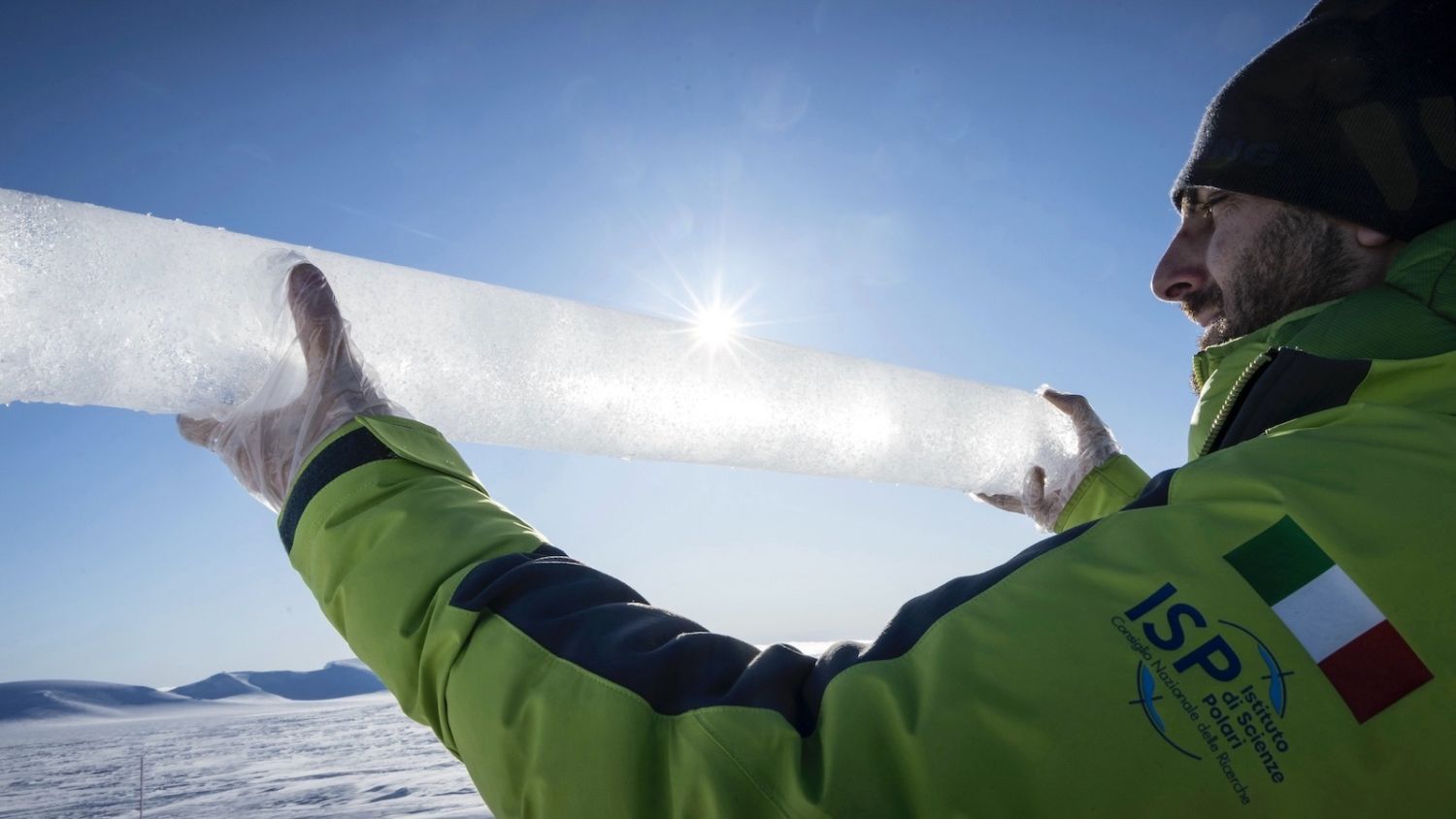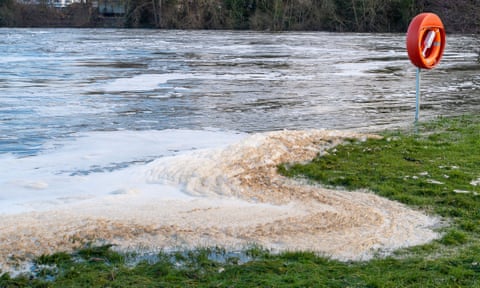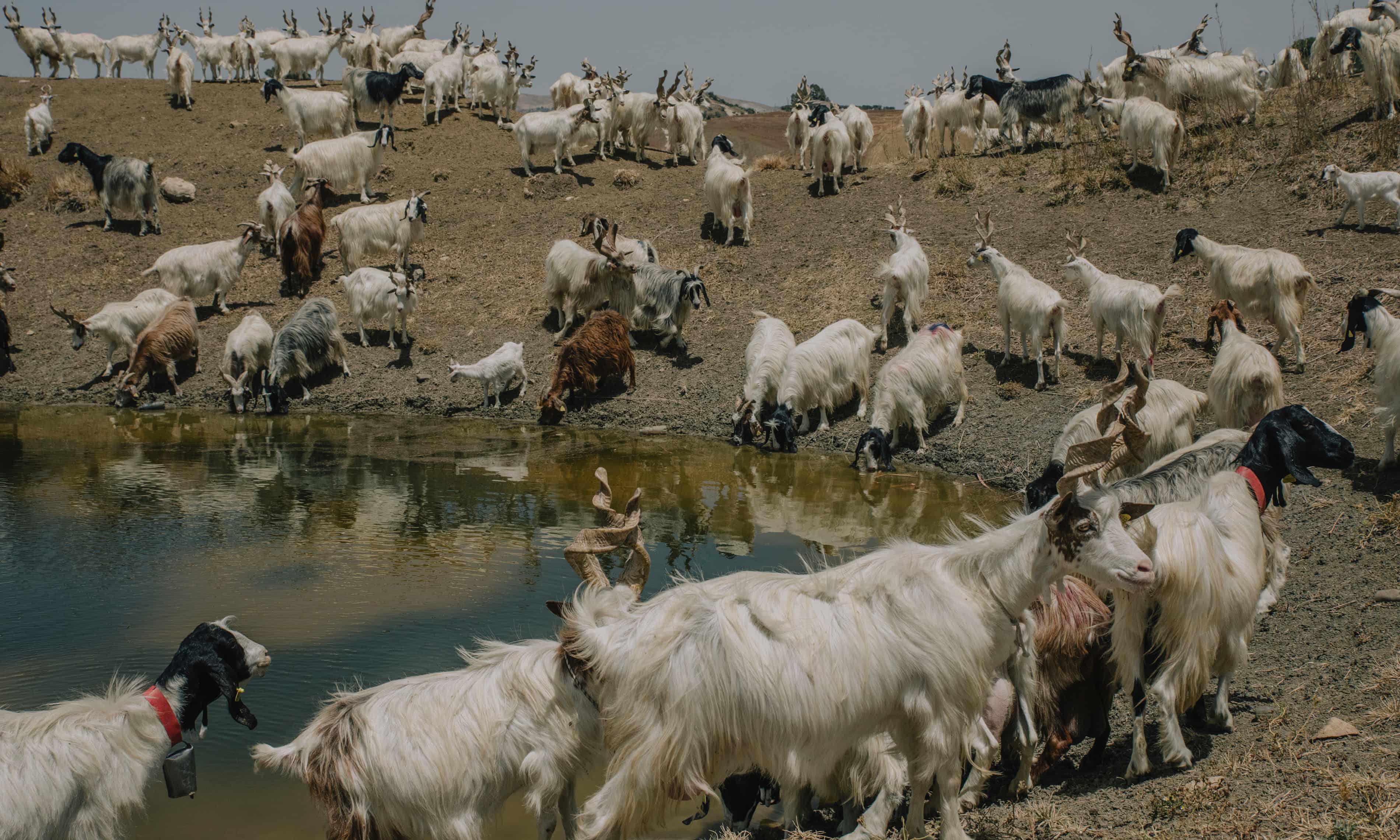
Your weekly guide to Sustainable Investment
Upcoming TBLI Events
TBLI Inspiration Weekend
Join a transformative experience for Impact Leaders at Glen House, Scotland.
Reserve your spot today! - Deadline July 15th!
€2,500 (includes food, drinks, accommodation, excursions & concert). All previous Glenhouse attendees receive 10% discount.
Limited spots are available! A 50% deposit secures your place.
For full details and impressions of Glenhouse
Would you like to watch a recording of a past TBLI Talk event? Visit this page
Are you looking to raise money for your fund or company? TBLI's Capital Connect service might be just what you are looking for.
Different tiers of service available
More info
TBLI Radical Truth Podcast
How Panama Papers support financial Literacy in Italy /w Claudia Segre
Claudia Segre is the driving force behind the Global Thinking Foundation. Her story as to how Global Thinking Foundation was started, funded and its purpose is brilliant and inspiring.
Global Thinking Foundation is among the most active foundations in the organization of citizenship events and socially useful projects on the national and international scene. We promote initiatives related to the quality of education (Goal 4), gender equality and the prevention of violence and economic abuse (Goal 5) and the promotion of decent work and sustainable economic growth (Goal 8). Our goal: to be a resource for the social promotion, culture and enhancement of women’s work, scientific research, education and health.
TBLI Hero
Thank you, Glenn, for your remarkable contributions and unwavering support in the ESG and Impact Industry. You are a true TBLI Hero and a fantastic mensch. Sending you a big hug from an admiring friend.'' - Robert Rubinstein (TBLI Group, Chairman)
The Race to Save Glacial Ice Records Before They Melt Away

BY NICOLA JONES - YaleEnviornment360
As glaciers melt around the globe, scientists are racing to retrieve ice cores that contain key historical records of temperature and climate that are preserved in the ice. Researchers are also pushing to gather ancient relics locked in the ice before they are lost to warming.
When Margit Schwikowski helicoptered up to Switzerland’s Corbassière glacier in 2020, it was clear that things weren’t right. “It was very warm. I mean, we were at 4,100 meters and it should be sub-zero temperatures,” she says. Instead, the team started to sweat as they lugged their ice core drill around, and the snow was sticky. “I thought, ‘This has never happened before.’”
What Schwikowski couldn’t see yet, but would find later in the lab, is that it wasn’t just the surface that was affected: Climate change had penetrated the ice and trashed its utility as an environmental record. Warming weather had created meltwater that trickled down, washing away trapped aerosols that researchers like her use as a historical record of forest fires and other environmental events. Because of the melt, she says, “we really lose this information.”
Schwikowski, an environmental chemist at the Paul Scherrer Institut near Zurich, is the scientific lead for the Ice Memory Foundation, a collaborative group that aims to preserve glacial ice records before climate change wrecks them. Their goal is to get cores from 20 glaciers around the world in 20 years, and, starting in 2025, lock them away for long-term storage in an ice cave in the Antarctic — a natural freezer that will hold them at close to minus 60 degrees F (minus 50 degrees C). Since the program’s start in 2015 they have taken cores from eight sites, in France, Bolivia, Switzerland, Russia, Norway, and Italy. But the core attempted from Corbassière was a failure — and has the team wondering if they are already too late.
The team, watching in despair as ice cores melt and muddle, is not alone in seeing climate change wreaking havoc with scientific records — often in unexpected ways. Geologists who hunt for meteorites on the ice in Antarctica are finding their mission thwarted by warming temperatures. And while archaeologists who study the artifacts spat out by ice patches are seeing a bonanza of new finds, they are also racing to get to those objects before they rot. Other heritage sites are slumping into thawing permafrost.
What all these researchers have in common is a race to preserve what they can, while they can. When you are standing on a glacier that’s literally melting under your feet, says Schwikowski, “you really feel the urgency.”
Due to climate change, high mountain glaciers are now endangered, losing ice faster than they are gaining it. Studies of a few dozen well-monitored glaciers in the World Glacier Inventory have shown that the pace of glacial ice loss has accelerated from a few inches per year in the 1980s to nearly 3 feet per year in the 2010s. A 2023 model of some 215,000 mountain glaciers showed that nearly half of them could disappear entirely by 2100 if the world warms by just 1.5 degrees C, the ambitious maximum warming target of the Paris Agreement.
Glaciers have annual layers, just like tree rings. At the top, a single year might see a few feet of snow added to the surface. Hundreds of feet down, weight compresses ice that is thousands of years old into thin, flowing layers, where less than an inch may contain a century of snowfall.
This ice preserves all kinds of information from the time when it was deposited. A spike in lead pollution comes at the height of the Roman Empire. A drop in pollen reveals the collapse of farming during the Black Death. The Chernobyl accident left a layer of radioactive cesium. Black carbon and the sugars from burned cellulose map out changes in forest fire activity across the globe. The ratio of different oxygen and hydrogen isotopes in the water also reveals the air temperature of the time.
Many mountain glaciers have been cored and studied over the past decades. Since scientific methods and research questions change over time, researchers preserve some cores or sections intact for future reference — to study, say, the genetics of ancient DNA. The National Science Foundation Ice Core Facility in Colorado, for example, holds 82,000 feet of collected ice cores — mostly from Greenland and the Antarctic, but also from North American mountaintop glaciers.
Environment Agency refuses to reveal directors’ possible conflicts of interest

By: Sandra Laville - The Guardian
Agency rejected FOI request about potential conflicts of financial and business interests held by regional directors
The Environment Agency is refusing to provide campaigners with details of potential conflicts of interests with water companies held by its directors across England.
The refusal to provide the information comes after the head of the agency, Philip Duffy, admitted that freedom of information requests have been buried by the regulator because the truth about the environment in England is “embarrassing”.
Ash Smith, of Windrush against Sewage Pollution (Wasp), said the refusal to provide details of any potential conflicts of financial and business interests held by the regulator’s regional directors was inexcusable. He revealed that a freedom of information (FoI) request had been rejected by the EA on the grounds that there was no lawful basis on providing the information as it was not necessary to satisfy a legitimate interest.
The EA also said it would be unfair to individuals to disclose such information to the world at large. The Information Commissioner’s Office (ICO) is now investigating the refusal to comply with the FoI request.
In a letter to Duffy, Smith said: “Claiming that the public has no right to know and that the interest of potentially conflicted employees takes precedence is ludicrous and disgraceful … public scrutiny and transparency are vital.”
He called on Duffy not to wait for the ICO ruling on the refusal but “to set the professional standards of your organisation, apply the Nolan principles of public life and order the release of the directors interests under the Freedom of Information Act”.
Smith highlighted past cases of senior agency staff moving to work for water companies as the reason transparency was needed.
These include the former director of operations for the EA, who became a non-executive director of British Water, then an industry lobbying organisation, and was later recruited by Southern Water at the time it had been accused of illegal sewage dumping, for which it was later fined a record £90m.
Duffy, who took over as the EA chief executive last July, told an audience at the Rivers Summit last month that his officials were “worried about revealing the true state of what is going on” regarding the state of the environment.
Duffy said: “I see these letters and these FoI requests and I’ve got great volumes of them, and I see local officers going through quite a contorted processes to not to answer when they know, often, the answer but it’s embarrassing.
“They do it because they are frightened. They are worried about revealing the true state of what’s going on, they’re worried about reaction from NGOs and others, and possibly from the government, about the facts of the situation. And they’re often working at a local level but in a very nationally charged political environment, which is very difficult for them.”
The ICO, which oversees the law on the Freedom of Information Act, has warned the EA that the public have a right to have their requests answered and that transparency should be taken seriously.
Last year, theEA was served with an enforcement notice by the ICO because of evidence seen by the commissioner about its performance in relation to its statutory duties under the FoI Act.
An EA spokesperson said: “We are completely committed to complying with the freedom of information/environmental information regulations. It’s a top priority and we constantly review our performance. We receive around 46,000 requests each year. As is standard practice for public sector organisations, we make public the personal interests of all board members and executive directors at the Environment Agency, but it’s right we do not make public the interests of other employees. This is because it would be unlawful, unfair and would breach data protection rules.”
Read full article
‘We can’t let the animals die’: drought leaves Sicilian farmers facing uncertain future

Rainfall is down 40% since 2003 and experts predict a third of Sicily will be desert by 2030
Every morning, as soon as he wakes up, Luca Cammarata looks to the sky in the hope that some clouds on the horizon will bring a few drops of water. On his farm in the Sicilian interior, it hasn’t rained for months. Cammarata’s 200 goats graze on a parched landscape resembling a lunar surface, forced to eat dry weeds and drink from a muddy pond.
The 53-year-old has never experienced a drought like it. “If things continue like this,” he said, “I will be forced to butcher my livestock and close down my farm.”
The desert is encroaching across Sicily, the largest and most populous island in the Mediterranean, where a European temperature high of 48.8C was recorded in 2021. Rainfall is down by more than 40% since 2003. In the last six months of 2023, just 150mm of rain fell.
“The situation is dramatic, there is no longer any water for the animals to drink,” Cammarata said. “The only water resource we have is this artificial pond, but now there is nothing but mud. We ask the authorities to send the army to help us get water to the farms. We can’t let the animals die. A farmer can’t bear to see their animals die of thirst.”
In May the government in Rome declared a state of emergency over the Sicilian drought, allocating €20m in assistance – well short of the €130m requested by the regional government.
Christian Mulder, a professor of ecology and climate emergency at the University of Catania on the island, painted a stark picture of Sicily’s future while criticising what he said were serious failures on the part of regional and national authorities.
“By 2030, a third of the territory of Sicily will become a desert, comparable to the lands of Tunisia and Libya,” Mulder said. “The entire strip facing the Sicilian Channel [waters separating Sicily from Africa] is doomed to desertification. The ancient Arabs who once inhabited the island had successfully devised ways to manage water. However, these old aqueducts have not been maintained or updated. Sicily is now facing the concrete consequences of decades of mismanagement of water resources.”
Traditionally, drinking water in the island is sourced from aquifers, subterranean rock layers saturated with water, while water for agriculture is stored in large tanks constructed after the second world war. Both systems rely on increasingly scarce winter rainfall.
For three decades, essential maintenance to the irrigation network has been neglected, diminishing the capacity of the island’s reservoirs.
“Once we had artificial ponds that so that the livestock could drink during grazing,” Cammarata said. “But due to drought and high temperatures, all the small artificial ponds have dried up.”
In October 2023, average temperatures in the island ranged between 28 and 30C, with peaks reaching 34-35C, making it the hottest October in Sicily in the past 100 years.
But the real problem comes in summer, when temperatures approach 48C and waves of fires pulverise what little vegetation remains. Last year, according to an estimate made by the regional civil protection agency, fires caused more than €60m (£51m) worth of damage. More than 693 hectares (1,712 acres) of woodland on the island were destroyed.
“It gets worse every day,” said Liborio Mangiapane, a farmer in Agrigento. “The situation is exacerbating. It’s a tragedy.”
Sicily, Malta and Spain are among the Mediterranean regions most affected by severe drought conditions. The UN’s Intergovernmental Panel on Climate Change (IPCC) has forecast that heatwaves and droughts will increasingly afflict these areas in the next few decades.
Nationwide agricultural production declined by 1.8% in 2023 due to the impact of the climate emergency, according to the national statistics agency. The agency reported decreases in wine production of 17.4% and fruit production of 11.2%.
Coldiretti, Italy’s biggest farmers’ association, is striving to support farmers by dipping into its own pockets to buy water in order to refill artificial lakes. But this effort alone is insufficient.
Read full article
A Republican makes a case for ESG and sustainable investing

By: By Emile Hallez
Despite attacks on environmental, social, and governance data being used, one former Congressman said he is hopeful about climate investing.
Sustainable investing is one of the most polarizing topics in Washington – but it hasn’t always been that way, and there is hope that Republicans will back off from a years-long campaign against ESG, a former House representative says.
A major reason for that, Republican Carlos Curbelo said, is that many in his party care about the environment, despite the political rhetoric and attacks on “woke” investing.
And it isn’t lost on incumbents in Congress that their states and districts stand to benefit significantly from the roughly $369 billion in clean-energy and climate change provisions of the Inflation Reduction Act, which is set to channel funds to rural communities. That legislation passed on a party-line vote in 2022, with all Republicans in Congress rejecting it.
“They know that a lot of this investment is going to their districts and their states,” Curbelo said, speaking Tuesday at the US SIF Forum in Chicago. That is even as Republicans widely support the idea of undoing the massive climate package, he said.
“There is a lot of opportunity to identify and encourage Republicans to understand that rolling back the entirety of the IRA would be very disruptive to a lot of sectors and the economy. And it would obviously do some damage to the environment,” he said. “I believe the core of the IRA can definitely be protected.”
The act “presents us with a once-in-a-generation opportunity” for climate policy, and the investments in rural communities could help ease political tensions, he said.
“The environment does not belong or should not belong to either party,” said Curbelo, who represented Florida’s 26th district until 2019. “We need to treat this issue with that kind of respect and elevate it in a way that actually releases it from being part of either ideology or either party. This is something that everyone should be for.”
Of course, Republicans in the current Congress have been actively opposing sustainable investing and ESG. There have been numerous hearings on the topic, and there were so many packed into last summer that July became informally known in the party as “ESG month.”
Legislators have targeted asset managers, industry groups, and proxy advisors, with hours of testimony at hearings marked by the kind of grandstanding by politicians now common in the culture wars.
Numerous states have also restricted business with or blacklisted financial institutions dubbed ESG friendly.
“The ESG backlash is a testament to our success,” said Matt Patsky, CEO of Trillium, at the US SIF event. “We are having an impact.”
Among those who were grilled in Congress last year was Illinois State Treasurer Michael Frerichs, who oversees an investment portfolio totaling $56 billion.
Using environmental, social, and governance data to inform investment decisions is about “value” not “personal values,” although there is often overlap, Frerichs said at US SIF.



